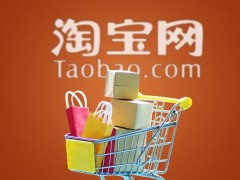What are the delivery rules of Douyin?
1、商家应当在承诺给消费者的发货时效内发货并在平台内上传真实有效物流单号,如未有明确约定,平台认定为根据商家在交易系统中商品设置的发货时间为承诺的时间,具体发货时间要求参见《商家发货行为管理规则》。
2、商家发货前,消费者申请退款的,商家应停止发货,与消费者协商达成一致后进行退款或继续发货,商家未与消费者协商强行发货的,支持消费者退款,货物由商家自行追回,但消费者主动签收并且确认收货的除外。
3、商家发货后货物还在运输途中,消费者申请退款的,若商家拒绝消费者诉求且未对物流进行拦截(或拦截失败),平台介入后,有权对物流进行拦截返还商家(拦截成功后拦截费用由商家承担,双方另有约定的除外),拦截成功后,平台有权判定支持消费者。
4、如商品配送存在超区问题的,商家应在商详页说明或与消费者另行约定,否则商家需提供免费转运服务,如消费者同意自行提货,由此产生的自提费用由商家承担。
5、如商品发出后物流信息停滞不更新(除揽件信息外,无物流信息更新,收货信息除外),商家应积极协助消费者查询物流信息停滞原因及商品下落(如快递公司物流系统故障等)。
6、商家对每个独立生成并付款的交易订单(非合并付款的订单)应予单独发货,除特殊情形外(双方另有约定、多笔订单中商家对邮费予以调整致使合并发货的),若未征得消费者同意,不得合并成一个包裹发货。否则,消费者签收后主张商品少件的,由商家负举证责任。《【合并包裹】执行细则》
7、商家承诺或买卖双方约定采用特定的承运人运送商品的,商家应按照承诺或约定履行。否则,非包邮订单且消费者已签收商品的,可要求商家退还消费者已支付的运费,同时在不影响二次销售的情况,支持消费者退货退款诉求;
8、商家应将商品送达至消费者订单收货地址并交由收件人本人签收,如未经消费者同意私自放在快递柜、站点等位置,消费投诉未收到货的,商家应提供相应的证明消费者已签收,否则,由此产生的相应费用及货物风险需要由商家承担。
9、商家将发货商品交付承运人后消费者签收前,商品风险由商家承担;非商家问题退/换货时,消费者将退/换货商品交付承运人后商家签收前,商品风险由消费者承担,消费者有权向承运人求偿。商家在同意退货协议时附有合理条件的,消费者退货应符合该条件。
10、商家违反上述“发货规范”导致消费者未收到商品或拒收商品的,由此产生的相关费用及商品损毁或灭失风险,由商家自行承担,交易作退款或退货退款处理。
11、商家违反上述“发货规范”但消费者已实际使用商品(封装商品拆封即为使用),消费者以商家违反发货规范为由而主张退货退款的,应和商家协商一致,否则平台将不予支持。因商家的不正当行为诱使消费者确认收货的情形除外。
12、消费者不得利用平台规则及商家发货行为漏洞,恶意下单获取商家赔付,如获悉商品缺货后大量恶意下单,平台有权拒绝对消费者赔付。
Professional answer
1. Merchants should deliver goods within the delivery time promised to consumers and upload real and valid logistics order numbers on the platform. If there is no clear agreement, the platform will determine that the delivery time set by the merchant for the goods in the transaction system is the promised time. For specific delivery time requirements, please refer to the "Merchant Delivery Behavior Management Rules".
2. If the consumer applies for a refund before the merchant delivers the goods, the merchant should stop delivering the goods, and refund or continue to deliver the goods after reaching an agreement with the consumer. If the merchant does not negotiate with the consumer and forces the goods to be delivered, the merchant will support the consumer's refund, and the goods will be recovered by the merchant, except when the consumer actively signs for and confirms receipt.
3. If the goods are still in transit after the merchant delivers the goods, and the consumer applies for a refund, if the merchant refuses the consumer's request and does not intercept the logistics (or the interception fails), the platform has the right to intercept the logistics and return it to the merchant after intervention (the interception fee after successful interception shall be borne by the merchant, unless otherwise agreed by both parties). After the interception is successful, the platform has the right to determine to support the consumer.
4. If there is a problem of out-of-region delivery of goods, the merchant should explain it on the business details page or make a separate agreement with the consumer. Otherwise, the merchant needs to provide free forwarding service. If the consumer agrees to pick up the goods by himself, the merchant shall bear the resulting self-pickup fee.
5. If the logistics information of the goods stagnates and is not updated after the goods are shipped (except for the collection information, there is no logistics information update, except for the delivery information), the merchant should actively assist the consumer to inquire about the reasons for the stagnation of logistics information and the whereabouts of the goods (such as the failure of the logistics system of the express company, etc.).
6. The merchant shall ship each independently generated and paid transaction order (non-combined payment order) separately. Except for special circumstances (the two parties have other agreements, and the merchant adjusts the postage in multiple orders to combine shipments), if the consumer’s consent is not obtained, it shall not be combined into one package for shipment. Otherwise, if the consumer claims that the goods are missing after signing for them, the merchant shall bear the burden of proof. "Detailed Rules for the Implementation of [Combined Packages]"
7. If the merchant promises or the buyer and seller agree to use a specific carrier to transport the goods, the merchant shall perform in accordance with the promise or agreement. Otherwise, if the order is not free shipping and the consumer has signed for the goods, the merchant can be asked to refund the freight paid by the consumer. At the same time, the consumer's request for return and refund will be supported without affecting the secondary sales;
8. The merchant should deliver the goods to the delivery address of the consumer's order and have the recipient sign for it. If the goods are placed in the express cabinet, station or other location without the consent of the consumer, if the consumer complains that the goods have not been received, the merchant should provide corresponding proof that the consumer has signed for it. Otherwise, the corresponding expenses and goods risks incurred shall be borne by the merchant.
9. After the merchant delivers the goods to the carrier and before the consumer signs for them, the risk of the goods shall be borne by the merchant; when returning/exchanging goods due to non-merchant issues, the consumer shall bear the risk of the goods after the consumer delivers the return/exchange goods to the carrier and before the merchant signs for them, and the consumer has the right to claim compensation from the carrier. If the merchant attaches reasonable conditions when agreeing to the return agreement, the consumer's return should comply with such conditions.
10. If the merchant violates the above-mentioned “delivery specifications” and causes the consumer to fail to receive the goods or refuse to accept the goods, the merchant shall bear the related expenses and the risk of damage or loss of the goods, and the transaction shall be refunded or returned for refund.
11. If the merchant violates the above-mentioned “delivery specifications” but the consumer has actually used the goods (packaged goods are used after being unpacked), and the consumer claims a return and refund on the grounds that the merchant violated the delivery specifications, the consumer should reach an agreement with the merchant, otherwise the platform will not support it. The exception is when the merchant induces the consumer to confirm receipt of the goods due to improper behavior.
12. Consumers shall not take advantage of loopholes in the platform rules and the merchant’s delivery behavior to maliciously place orders to obtain compensation from the merchant. If a large number of malicious orders are placed after learning that the goods are out of stock, the platform has the right to refuse to compensate the consumer.
1. Order closure. If an order is not "shipped" and refunded within 150 days from the time the consumer places the order, the order will be automatically closed and the transaction amount will be returned to the consumer's account according to the original payment method. If the original refund is unsuccessful, the platform will provide other refund methods.
2. Deduction of deposit. For each illegal order, a deposit of 10 yuan will be deducted.
The next day after the violation is determined, a unified deduction will be made. The deposit can be deducted no more than twice for a single order.
For this violation, the upper limit of the deposit deduction by the store per day is no more than 500 yuan.
3. Product ban. If the delivery timeout for a single order exceeds 2 times in total, the corresponding product will be banned.
4. Store closure/clearance processing. If the same order is still not shipped in a timely and standardized manner after being fined multiple times or refunded by consensus with the user, the platform has the right to directly close or clear the store according to the situation.
5. After the seller receives the goods and confirms receipt, the system automatically initiates a claim. The insurance company will review the case within 72 hours. After the review is passed, the system will automatically complete the claim settlement. The compensation will be directly paid to the red envelope or change balance corresponding to the buyer's shopping platform. Users can withdraw cash on the corresponding shopping platform.
If Douyin ships the goods, it will definitely be shipped in the order of order placement and payment
Similar Q&A
recommend How to use Starbucks Douyin group purchase coupons?
E-c News Continuously pushing e-commerce knowledge to you








Latest Q&A More
-
Do I need a trademark to open a franchise store on Pinduoduo to sell books?
#Pinduoduo#
-
How to withdraw from a Pinduoduo store
#Pinduoduo#
-
How to withdraw from Pinduoduo merchants
#Pinduoduo#
-
How to pay fees when closing a Pinduoduo store
#Pinduoduo#
-
How to withdraw from Pinduoduo
#Pinduoduo#
-
Which store on Pinduoduo is authentic?
#Pinduoduo#
-
Which stores on Pinduoduo can buy genuine products?
#Pinduoduo#
-
How to check the store under Pinduoduo
#Pinduoduo#
-
How to receive Pinduoduo online game products
#Pinduoduo#
-
How to sell the electronic version on Pinduoduo
#Pinduoduo#
E-c News 2025-09-23 18:06:01

- African netizens use China Africa cross-border e-commerce platform for online shopping
- how is the new seller of cross-border e-commerce doing?
- how can cross-border e-commerce Amazon sell on Amazon platform without goods?
- Amazon store opening process and cost analysis!
- Amazon plans to expand its pharmacy business on a large scale and will add same day delivery service


